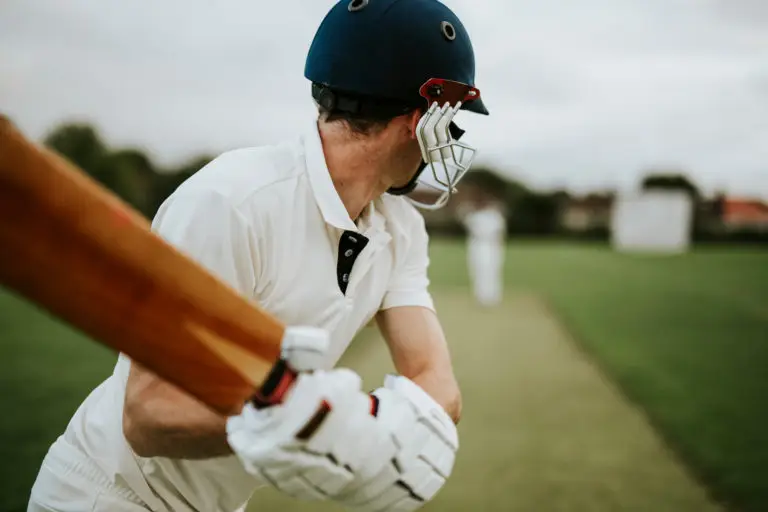It is a scandal that has shaken the cricketing world. Azeem Rafiq’s excruciating, courageous description of institutional racism at the heart of elite cricket and one of the game’s most prestigious clubs, Yorkshire County Cricket Club (YCCC), has shed a new spotlight on the troubling dichotomy between race and sports in Britain. The time is now for the Government and sporting bodies to take meaningful action and provide a powerful example for the whole of the sporting community.
Azeem’s experiences are by no means unique or even isolated to YCCC, with the England cricketer believing the “floodgates” are about to open on the sport’s racism crisis, stating: the cricketing world must be prepared and create a clear support plan for the hundreds of victims of abuse that will be coming forward.
His belief appears to be vindicated, with allegations of racism at Essex County Cricket Club emerging within the last week. Azeem’s revelations must be understood in a wider context – racism in British sports is an established and ugly truth.
Indeed, Aseem himself has apologised for using anti-Semitic language in Facebook messages from 2011 and for an Instagram meme containing a saying relating to African people, stating that he is “deeply ashamed” of his actions. This serves as further evidence of how deeply enshrined racism is within sports culture.
The data reveals that racism within sport is an overwhelming issue that is not receiving sufficient attention or action by public bodies or the Government alike. Last year, research by Sporting Equals, the UK’s leading charity for racial equality and diversity in sport, found that 83% of people from black and minority ethnic backgrounds have experienced discrimination in some form in the sector – with only 8% feeling the problem was resolved to their satisfaction.
Moreover, the governing bodies of more than 80 of the nation’s sports – including the Rugby Football Union, Lawn Tennis Association, British Cycling, UK Athletics and England Netball – issued a joint statement confessing they have not done enough to confront racism at all levels, from grassroots participation through to the top levels of governance.
This year’s Euro 2020 final loss for the England national team, and subsequent abhorrent abuse suffered by Marcus Rashford, Jadon Sancho, and Bukayo Saka, revealed racism within sport is not limited to clubs or sporting institutions, but is endemic of British society as a whole.
This begs the question, what steps should be taken to tackle systematic racism within sports?
Firstly, there must be widespread acknowledgement that racism within British sports is indeed a systemic issue. Moving testimonials such as Azeem’s to the DCMS committee and symbolic gestures as seen with Premier League footballers taking the knee, provide a reminder of the abuse some players endure. Yet, a general malaise within public discourse and media reporting paints the picture that it is the action of “a few bad actors” or, more dangerously, when compared to other countries, Britain does not have a problem.
The Government must take a hard-line with both sports fans and institutions. One of the key challenges athletes face is online abuse. The draft Online Safety Bill does not currently include provisions to ban anonymity on social media platforms, yet a recent poll by Compassion in Politics, a non-profit organisation that promotes compassion as a force for change, found that of those who had suffered online abuse, 72% of it was from anonymous accounts. The issue of anonymity online also prevents any meaningful form of punishment to be issued to the abuser. Tackling this issue could be a major step forward in protecting sportspeople and reducing the racist-echo chamber that exists online. Sporting institutions must also take this zero-tolerance approach. The Premier League has set a strong example for other institutions to follow, with racist abusers to be banned from all stadiums indefinitely.
Further, the Government, sporting bodies, and individual clubs must enact effective mechanisms for whistleblowers to reveal the abuse they have suffered, in addition to legal and policy measures that hold sports clubs and federations responsible for the racist acts that take place on their watch. Finally, they must commit to organising and financing large-scale anti-racism awareness campaigns in sport at all levels, and provide funding for social and educational campaigns aimed at combating racism and racial discrimination in sport. It is pivotal these campaigns are conveyed effectively, as public relations experts, we understand the power of communications and messaging when attempting to shape public sentiment and achieve long-lasting change.
The strength of British sport is defined by the diversity of its athletes, but for far too long our BAME sporting heroes have been judged by their differences and not on their sporting merit. Race within sport is a conversation we have reflected on before, so it is crucial we use Azeem’s powerful testimony as a platform for genuine change.




